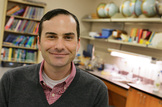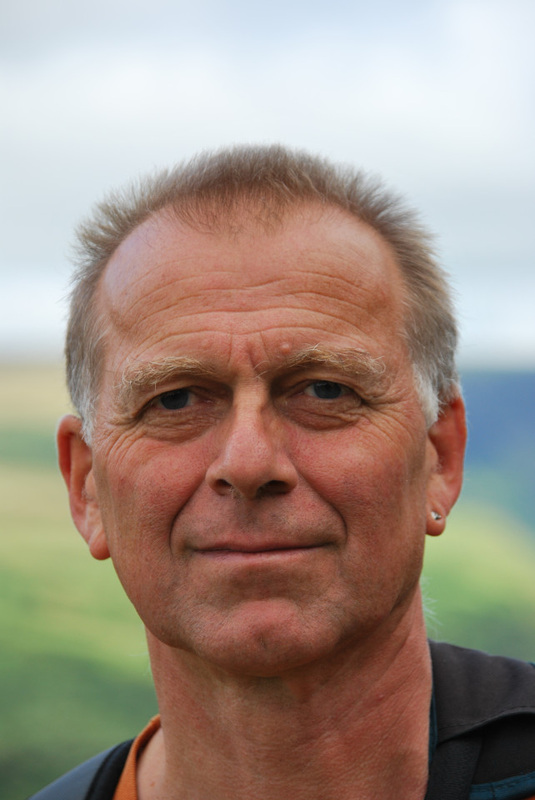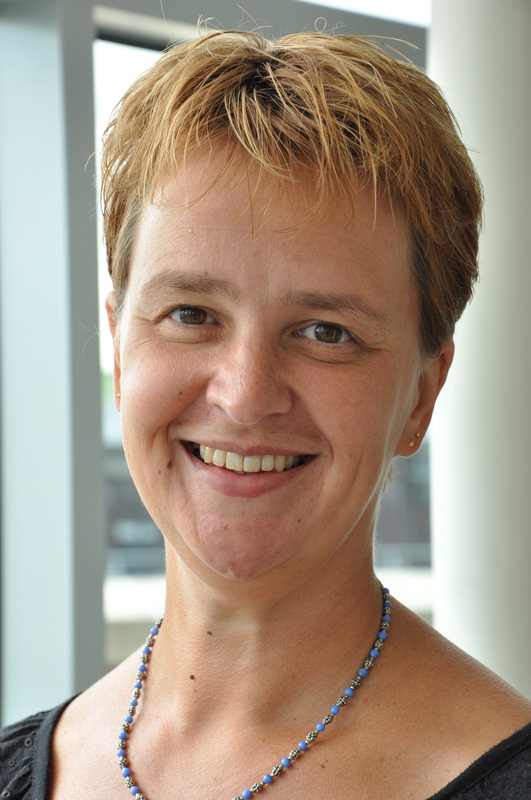Conference Program
9.30 Registration, Coffee and Tea
10.00 Opening
Joke Voogt
Joke Voogt
|
10.15 - 11.15
|
Thema 1: Teacher competencies
Keynote speaker: Cory Forbes (University of Nebraska -Lincoln). Supporting teachers’ use of curriculum materials for science: Empirically-grounded perspectives on teachers’ curriculum design competencies Keynote speaker: Frank Jansma (Onderwijscoöperatie). ‘Teacher ownership, what’s new….?’ Professional emancipation of the teacher as a key process in building competence based confidence in making good quality education. |
11.15 - 11.30 Break
|
11.30 - 12.30
|
Round 1: Workshops (chose from one of these workshops)
|
12.30 - 13.30 Lunch break
13.30 - 14.30 Thema 2: Technology integration competencies
Keynote speaker: Lynn Nolan (Global Education Solutions). Global vision for transformative teaching
Keynote speaker: Petra Fisser (SLO). Didactische ict-vaardigheden van docenten: Beargumenteerd keuzes maken
14.30 - 14.45 Break
Keynote speaker: Lynn Nolan (Global Education Solutions). Global vision for transformative teaching
Keynote speaker: Petra Fisser (SLO). Didactische ict-vaardigheden van docenten: Beargumenteerd keuzes maken
14.30 - 14.45 Break
|
14.45 - 15.45
|
Round 2: Workshops (chose from one of these workshops)
|
15.45 – 16.00 Closing ceremony
Speaker: Jules Pieters
Speaker: Jules Pieters
16.00 Closing reception
Speakers
Cory ForbesSupporting teachers’ use of curriculum materials for science: Empirically-grounded perspectives on teachers’ curriculum design competencies
A crucial component of teachers’ practice involves the use of curriculum materials. The relationship between teachers and curriculum materials is an active one in which teachers evaluate, critique, adapt, and enact curriculum materials in light of their own needs, those of their students, and the contexts in which they work. For the past 8 years, these assumptions have grounded a multi-faceted research and development agenda. In this presentation, I present findings from empirical research on science teachers’ expertise, learning, and professional practices as conceptualized through and informed by perspectives on the teacher-curriculum relationship, pedagogical design capacity, and curriculum design competencies. About Corby Forbes: Cory Forbes is an Associate Professor of Science Education and Science Literacy Coordinator at the University of Nebraska-Lincoln. He directs multiple externally-funded projects that involve regional, national, and international partnerships with education researchers, STEM faculty, and teachers, and other stakeholders. He is actively involved in science teacher education and professional development and has pursued a research and development agenda that foregrounds teachers’ capacities for pedagogical design in science learning environments. Forbes was recently awarded the 2014 Early Career Research Award by the National Association for Research in Science Teaching (NARST). [email protected] |
Lynn Nolan
Global Vision for Transformative Teaching
“Societies are changing into knowledge societies. Globalization has expanded opportunities around the world. Thus we may all benefit by using a common vocabulary when thinking about the future direction of teaching, learning, and leading.” Tarek Shawki, Preceding Director, UNESCO, Cairo Office Cultivating a global shared vision for digital-age teaching is imperative. Students’ expectations are that their teachers will provide them with the ICT knowledge and skills which will empower them to function effectively now and in a future marked by increasing change, evolving technologies, and the phenomenal growth of information. The International Society of Technology in Education’s NETS for Teachers and UNESCO’s ICT-Curriculum Framework for Teachers provide direction for Transformative Teaching. The principles found in these two sets of globally-recognized standards provide guidance and direction for teachers to embrace and implement in their classrooms to meet their students’ needs for 21st century learning. ISTE implemented a modified Delphi process for developing the NETS for Teachers, with thousands of educators, researchers, and policy-makers from around the globe. UNESCO began its process of framework development with a core group of writers and then it was vetted and refined by globally. ISTE’s NETS serve as a guide for teachers in transforming the way they teach, the way they work, and the way they learn. UNESCO’s Curriculum Framework leads teachers through a process for developing teacher technology competencies in three modules: Technology Literacy, Knowledge Deepening, and Knowledge Creation. In addition, ISTE developed NETS for Students, Administrators, and Coaches which collectively support future-focused teaching and learning. Educators are discovering numerous resources and models to support their development and implementation of these competencies as they move forward with realizing their vision for transformative teaching. About Lynn Nolan: Lynn Nolan’s background encompasses extensive professional experience in the field of education locally, nationally, and globally. She is currently consulting through her business, Global Education Solutions, on projects with profits and non-profits, in the US and globally. She is working with organizations on various projects which include: curriculum development; professional development; speaking engagements; researching implementation of standards; and teaching for the University of Maryland’s online graduate program. Lynn served as Senior Strategic Initiatives Officer for the International Society for Technology in Education (ISTE) through 2012. Prior to serving in this capacity, Lynn served at ISTE as the Senior Director of Education Leadership, managing and leading the Professional Development, Research and Evaluation, and Book Publishing teams. Lynn’s doctoral dissertation, “Forward to the Future: A Delphi Study of the Future of Education,” focused on researching trends in education and collaborating with ten highly-acclaimed educational panelists to develop forecasts for the future of education. Lynn is a long-time member of the World Future Society. The knowledge and expertise of this global network of diverse individuals has contributed greatly to her professional growth. In addition, Lynn served as the Director of the modified Delphi process in the NETS (standards) development process, receiving feedback and suggestions from thousands of educators globally. Lynn also served on the development of the UNESCO ICT Competency Framework for Teachers and subsequently on the Board. Lynn has also served on the Mobiles for Education International Alliance Steering Committee which is exploring ways to bring mobile devices primarily to developing countries. Other organizations represented on this steering committee include UNESCO, USAID, UNICEF, WORLDBANK, Peace Corps, WorldVision, the US Department of State and others. [email protected] |
Frans Jansma‘Teacher ownership, what’s new….?’ Professional emancipation of the teacher as a key process in building competence based confidence in making good quality education
Practitioner research and design competence is since long recognized as a core quality in professional occupations, teaching included. In the Dutch educational system however since the second half of the last century, research and design have been outsourced and institutionalized outside schools, depriving teachers of the opportunity to practice and develop this quality. This is not unique for teaching. In almost all professional occupation, economical optimization of work processes poses a continuous strain on the amount of time professionals can spend on quality improvement in competition with routine production time. Now the crucial importance of professional teachers for good quality education is widely recognized. Paradoxically the urgency of professionalization of the teaching profession threatens to translate into antiprofessional policy strategies and professionalization attempts in which teachers become the object of change instead of the agents of change we wish them to be. The professional organizations of teachers have combined their efforts to counterbalance this tendency. Their aim is a strong teaching profession with a backbone of professional teaching standards in which the professional practice of quality development through practitioner research and design is firmly embedded. The question is, will we be able to recognize the necessity to reinstate professional quality in the teaching profession and organize our schools and the educational system accordingly. This is essentially a political question. |
Petra Fisser
Teachers' technology integration competencies: making deliberate choices
Effective technology integration in education requires knowledge, skills, attitudes, and self-efficacy of teachers in relation to combining technology with specific subject matter and a suitable pedagogy. This involves knowledge about the aims and the content of that what should be learned, but also knowledge about the role of the teacher and the activities of the students, about the location and time of learning, about assessment, and about the materials and resources that can be used. Moreover, it implies that teachers are aware of the possibilities that different technologies have to offer, that they are aware of the unique context in which they teach, and that they are capable of making appropriate choices in relation to this. However, knowing about all this is not sufficient for technology integration. It is believed that teachers' technology integration competencies should be demonstrated not only by the way he or she plans and enacts technology integration, but also by his or her capability to reason professionally about this. In other words, it is important to know how technology should be integrated in education, but also why it is done it in that way in that specific situation by making deliberate choices. About Petra Fisser: Petra Fisser is a researcher and curriculum developer at the Dutch national institute for curriculum development (SLO). SLO is an independent, non-profit organisation, bridging the contexts of policy, research and practice in primary, special, secondary and vocational education. Petra's work focuses on Technological Pedagogical Content Knowledge (TPACK) and the knowledge and skills teachers need to integrate technology in education, on technology as subject matter (e.g. digital literacy), technology as a tool for teachers and schools, and on technology as an instrument for curriculum development. [email protected] |




